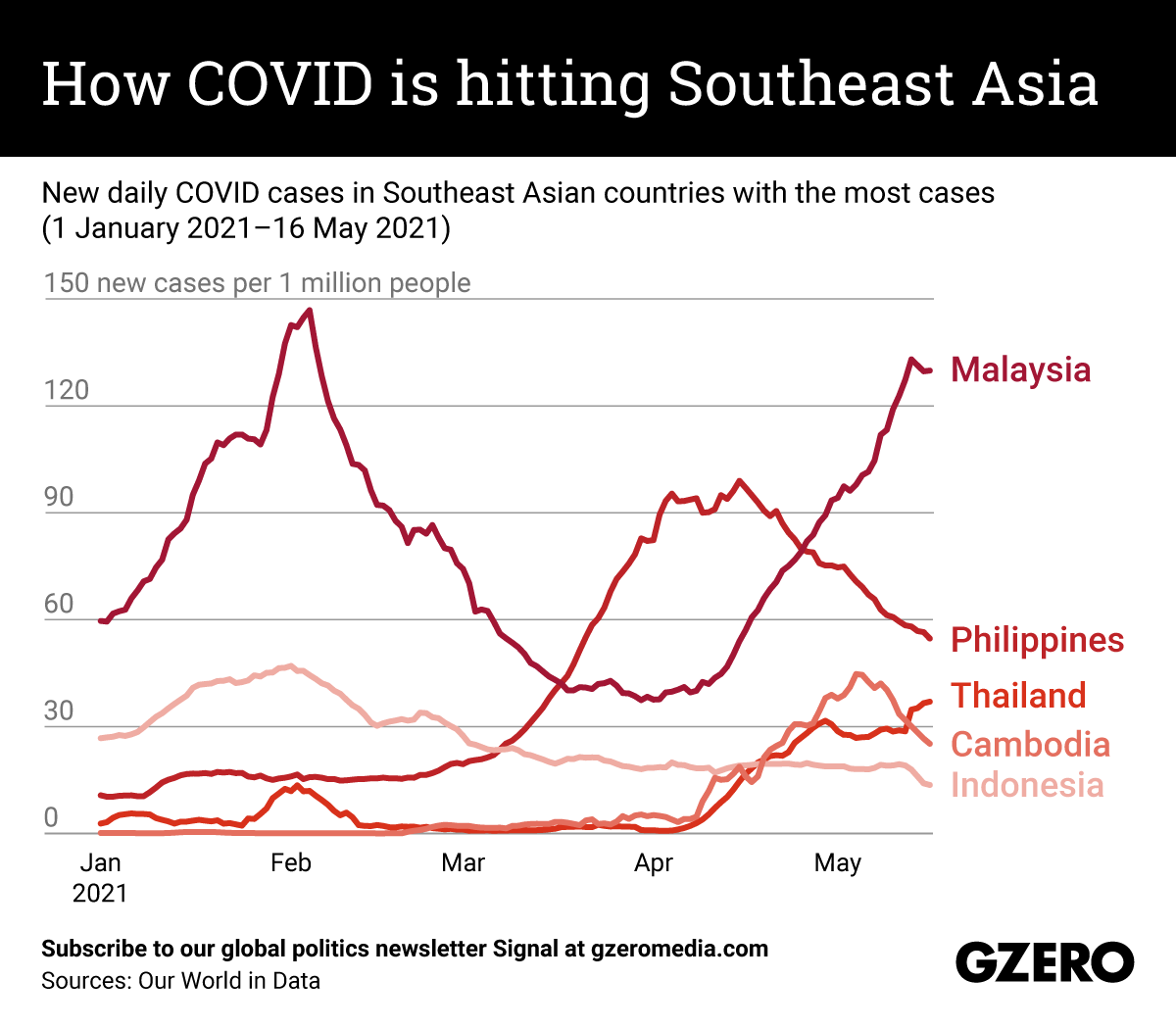May 18, 2021
In January 2020, Thailand became the first nation outside of China to record a case of COVID-19. But along with neighboring countries in Southeast Asia, Thailand managed to keep the coronavirus mostly at bay last year by swiftly enforcing lockdowns and other public health measures. However, having barely rolled out COVID vaccines, in 2021 many Southeast Asian nations are now grappling with massive new outbreaks of disease. Cambodia's caseload is surging, leading Prime Minister Hun Sen to say that his country was on "the brink of death." Meanwhile, Malaysian officials struggled to enforce domestic travel restrictions during Ramadan, causing cases to skyrocket in recent weeks. We take a look at COVID-19 caseloads in Southeast Asian countries with the highest daily caseloads this year.
More For You
Think you know what's going on around the world? Here's your chance to prove it.
Most Popular
A new US regulatory framework sets clear rules for stablecoins, defining issuer responsibilities and laying the groundwork for consistent federal and state oversight. With guardrails in place, stablecoins are shifting from crypto experiment to payment infrastructure. Explore the stablecoin framework with Bank of America Institute.
A shop owner David Rogilds holds a shirt that he sells in Nuuk, Greenland, January 14, 2026.
REUTERS/Marko Djurica
Rock, meet hard place: officials from Denmark and Greenland are meeting with members of the Trump administration to discuss the future of the semi-autonomous island.
© 2025 GZERO Media. All Rights Reserved | A Eurasia Group media company.
